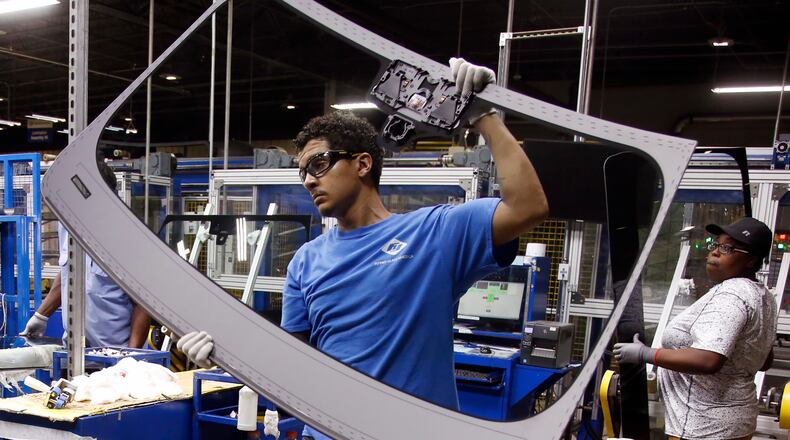Details of the new United States-Mexico-Canada agreement are yet to be finalized, and the Senate has yet to approve the pact. But industrial giants and observers are taking note.
RELATED: Trade concerns top Chinese ambassador's discussion at Fuyao
General Motors called the agreement “vital to the success of the North American auto industry.”
GM co-owns the DMAX truck engine plant in Moraine that has some 800 workers. Numerous Miami Valley companies also supply GM with components, including Fuyao Glass America, also in Moraine, and Tenneco, in Kettering.
Fuyao alone has 2,300 Dayton-area workers.
MORE: SEC charges Bellbrook man with 'rob Peter to pay Paul' scheme
The auto industry is absolutely central to Ohio, with 70.5 percent of North American light vehicle production either in Ohio or within 500 miles of its borders, the state has said.
Honda is the biggest auto employer in Ohio with more than 12,000 manufacturing employees, followed by GM with 9,600, 6,200 at Fiat Chrysler and 5,900 at Ford, according to state data.
Beyond Ohio, nearly a quarter of all new vehicles sold in the U.S. are assembled in either Mexico or Canada, said Jonathan Smoke, chief economist with Cox Automotive.
“A substantial portion of the vehicles assembled within the U.S. are dependent on components from Mexico and Canada,” Smoke said. “The new deal ensures the availability of a diverse set of vehicles from the most affordable compacts cars to the most popular pickups and will prevent a surge in pricing.”
But he cautioned that the industry could still have price problems caused by new tariffs.
“Nearly a quarter of new vehicles bought by Americans are assembled in countries outside of North America and a substantial number of vehicles sold are dependent on parts from countries like China that remain very much in the crosshairs of the administration,” Smoke said.
Charlie Chesbrough, senior economist with Cox Automotive, called the proposed tri-country accord “great news for the automotive industry as, once approved, longer-term strategic sourcing and manufacturing planning in the region can finally resume.”
Strategic planning for the North American industry has been uncertain over the last 18 months due to volatile trade policies. Now with some clarity around the import tariff policy for the region, suppliers and original equipment manufacturers can focus anew on products, Chesbrough said.
And Michelle Krebs, executive analyst with Autotrader, said the long-term agreement will allow automakers and their suppliers to do long-range planning.
About the Author

